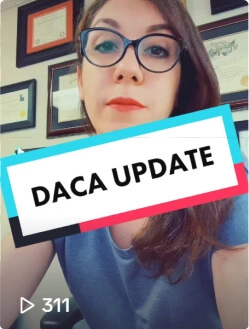Acquiring U.S. citizenship can be a complicated process full of paperwork and requirements. But did you know that some children may automatically become citizens through their parents?
This process is known as derivative citizenship. If you have children under 18 and you or your spouse are U.S. citizens, your children may already qualify for citizenship without having to apply.
Gaining an understanding of derivative citizenship is crucial, as there are specific requirements that must be met for eligibility. Don’t worry. We’ll explain everything in this guide so you can determine if your child has a claim to U.S. citizenship. Let’s get started on your citizenship journey.
Eligibility for Derivative Citizenship
For a child to have derivative citizenship, the following conditions must be met:
- The child has at least one U.S. citizen parent.
- The child is under 18 years old.
- The child has lawful permanent resident status.
- The child is residing in the legal and physical custody of the U.S. citizen parent.
- Adopted children qualify if adopted before age 16 and have lived with the adopting parent(s) for at least two years.
These requirements seem straightforward, but it’s important to understand the specifics when assessing your child’s eligibility.
Eligibility for Acquired Citizenship
Perhaps your child was born outside the United States to American-citizen parents.
Whether you had your child overseas temporarily or you live permanently in another country, your child likely qualifies for citizenship if they meet certain residency or physical presence requirements. These requirements depend on the time period when the child was born and the citizenship status of the parents:
Children Born Before 1934
For children born abroad prior to May 24, 1934, the child automatically acquired U.S. citizenship at birth if either parent was a U.S. citizen. No residency or physical presence was required.
Children Born Between 1934-1941
Children born abroad between May 24, 1934, and January 13, 1941, acquired citizenship at birth if one parent was a U.S. citizen and that parent had resided in the United States. No residency or physical presence was required for the child.
Children Born Between 1941-1952
For children born abroad between January 14, 1941, and December 24, 1952, if both parents were U.S. citizens, the child acquired citizenship if one parent had resided in the U.S. or its territories.
If one parent was a U.S. citizen and the other was an immigrant, additional residency or physical presence requirements applied for the citizen parent and the child. The specifics depended on when the citizenship claim was initiated.
Children Born Between 1952-1986
For children born abroad between December 24, 1952, and November 14, 1986, if one parent was a U.S. citizen and the other a U.S. national, the citizen parent had to be physically present in the U.S. for one continuous year in order for the child to acquire citizenship at birth.
If one parent was a U.S. citizen and the other an immigrant, the citizen parent needed 10 years of physical presence in the U.S., with 5 years after age 14. No requirements applied for the child.
Children Born After 1986
For children born after November 14, 1986, if one parent is a U.S. citizen and the other a U.S. national, the citizen parent must have one continuous year of physical presence for the child to acquire citizenship.
If one parent is a citizen and the other an immigrant, the citizen parent needs 5 years of physical presence, with 2 years after age 14. No requirements apply to the child.
Acquisition of Citizenship for Children Born Out of Wedlock
Children born abroad and out of wedlock may acquire U.S. citizenship at birth in certain circumstances, depending on whether the mother or father was a U.S. citizen.
If Mother Was a U.S. Citizen
If the mother was a U.S. citizen at the time of birth, the child generally acquires citizenship if the mother was physically present in the U.S. for a continuous period of at least one year at some point prior to the child’s birth.
The main exception is if the child was born prior to December 24, 1952, and then legitimated by the biological father before the child turned 21 and before January 13, 1941. In that case, the child does not derive citizenship through the mother.
If Father Was a U.S. Citizen
If the mother was not a U.S. citizen, but the biological father was, the requirements for the child to derive citizenship depend on when the child was born:
- Prior to 1/13/1941 – The child must be legitimated at any time, even as an adult.
- 1/13/1941 – 12/24/1952 – The child must be legitimated before age 21.
- 12/24/1952 – 11/14/1968 – The child must be legitimated before age 21.
- 11/15/1968 – 11/14/1971 – The child must be legitimated before 21 or meet alternative requirements.
- After 11/15/1971 – Alternative requirements apply and must be met before the child turns 18.
If the applicable conditions are met, the father’s physical presence and residency can then be used to determine if the child acquired citizenship at birth.
How to Apply for a Certificate of Citizenship
Now that you know the requirements, how do you go about documenting your child’s derivative citizenship? The process involves submitting Form N-600 to U.S. Citizenship and Immigration Services (USCIS).
Here are some tips for completing the application:
- Gather documents proving your U.S. citizenship, your child’s birth certificate, and evidence that you have legal custody of your child.
- Be prepared to pay a $1,170 filing fee, though waivers are available in some cases.
- USCIS processing times for Form N-600 average 5-7 months. Applying when your child is young prevents delays later.
It may sound daunting, but hundreds of thousands of families have successfully obtained Certificates of Citizenship for their children. Think of it as obtaining a valuable gift to last your child’s lifetime.
Benefits of Documenting Derivative or Acquired Citizenship
What are some key benefits of going through the citizenship documentation process?
Here are a few advantages:
- Your child will have official proof of their citizenship status and can get a U.S. passport. This provides protection when traveling abroad.
- Gaining citizenship makes your child eligible for certain jobs, like government and public sector positions, once they are older.
- Documented citizenship simplifies access to financial aid and other resources for higher education.
- Your child will be able to vote, serve on juries, and access other civil privileges of citizenship when they come of age.
The application process may seem complicated, but the peace of mind makes it worthwhile. Our San Jose immigration lawyers are here to help if you need guidance.
Get Help with Your Child’s Citizenship Application
Navigating all the paperwork and requirements for derivative citizenship can feel overwhelming at times. While this guide provided a valuable starting point, real-life situations are nuanced. You want to ensure you take the right steps for your child to qualify hassle-free.
That’s where family immigration lawyers make all the difference. At The Law Office of Lina Baroudi, our attorneys have helped hundreds of families through the citizenship process. We’re invested in you and your child’s future and citizenship journey.
Contact us for a consultation to discuss your unique situation. Our lawyers will review your case details and create a customized plan to help your child acquire U.S. citizenship.















